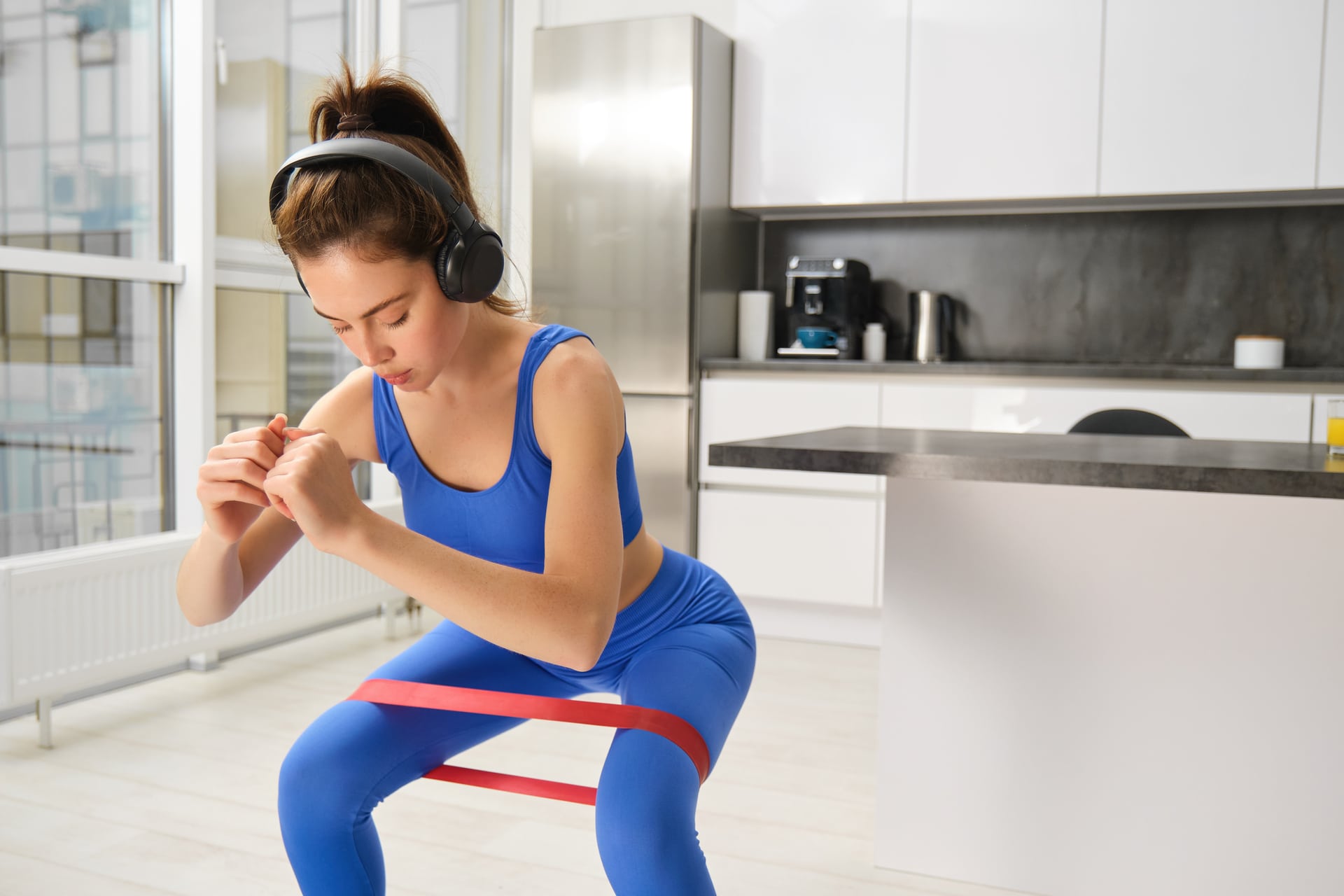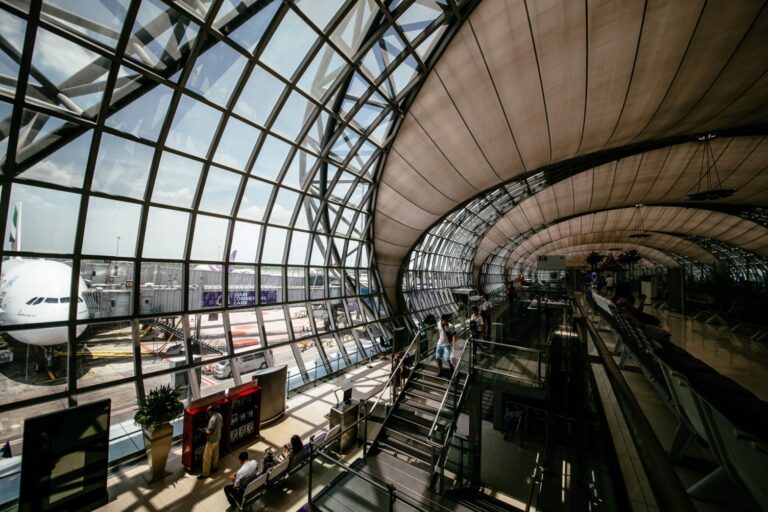
When I started paying attention to the way my environment makes me feel, I noticed that flying takes a huge toll on my performance. I travel a lot — to the tune of hundreds of flights every year. That adds up to a lot of wear and tear on my body and brain if I just sit on the plane and go, without taking steps to counteract the damage.
Then there’s the fact that airplanes are basically flying petri dishes. There’s a lot of opportunity to pass germs around through air travel. Planes pack a lot of people into close quarters, recycle the air everyone’s breathing… rinse and repeat without a lot of downtime to clean in between trips. It’s pretty nasty when you think about it.
I pack a lot into my days, and I can’t afford to feel run down or get sick every time I fly. Here’s what I do to fly without jet lag and without catching colds and viruses when I travel.
Charcoal mask
When you travel, bring along a mask that has a layer of activated charcoal woven into it. Sometimes, when the airplanes are landing or taking off, they vent jet fuel into the cabin. Jet fuel will make you weak and give you brain fog.
You don’t have to wear it the whole time. If you smell jet exhaust, pull out your charcoal mask and wear it for ten minutes or so until the exhaust dissipates.
Pro tip: If you want to buy one, do a search for “activated carbon mask.” If you search for “charcoal mask,” you’ll get results for black peel-off skincare masks. Those won’t help you breathe.
Get a charcoal travel mask here
Nasal spray
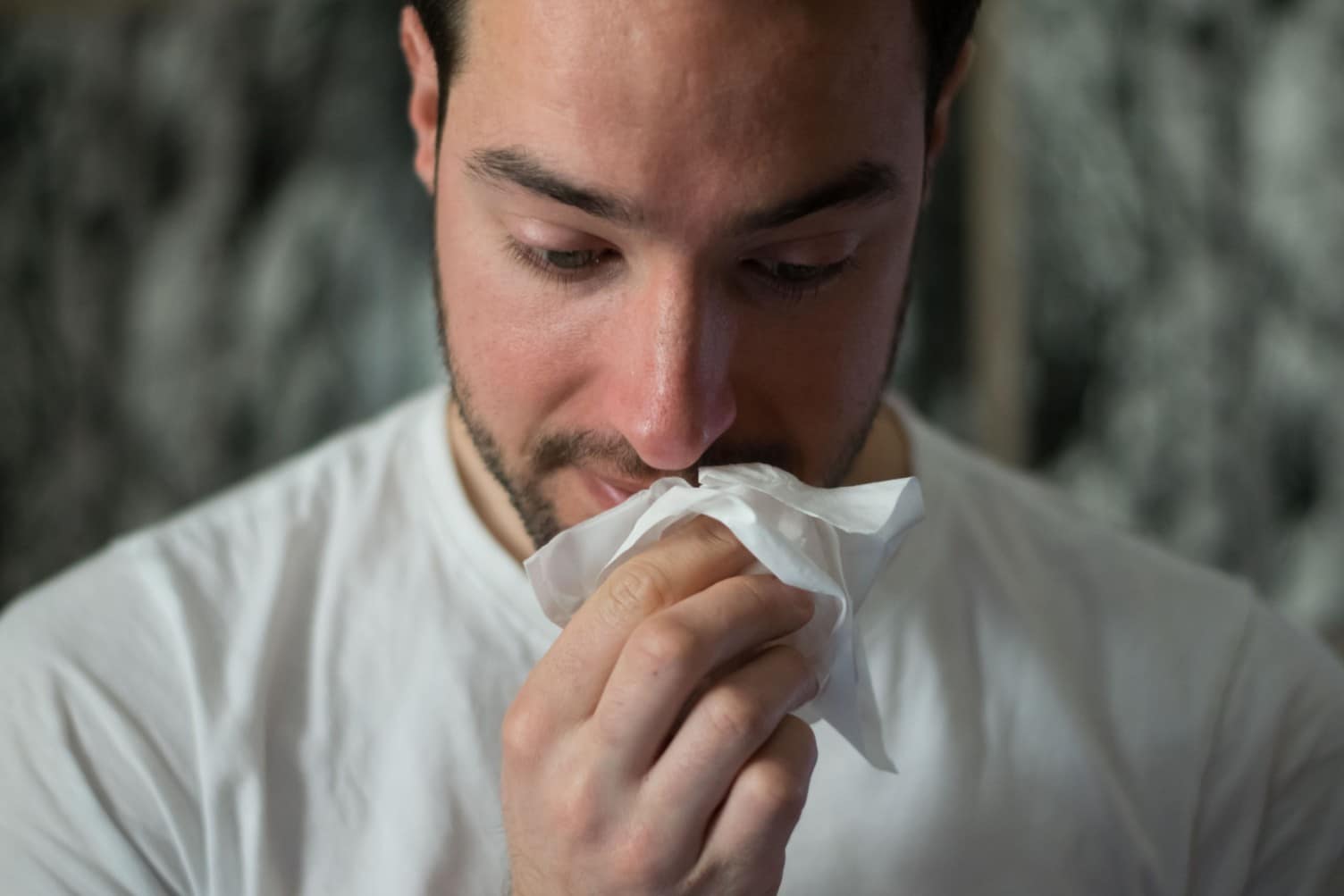
Give yourself a few sprays before you fly, and if it’s a long flight, spray a couple times while you’re in the air.
Get xylitol nasal spray here
Get colloidal silver here
Get iodine here
Ketones
Don’t eat sugar and carbs when you fly. In fact, it’s better that you fast while flying. If you’ve been following a low-carb, high fat, ketogenic diet, you’ll have ketones present, and you’re good to go. You can use Brain Octane Oil to bump up your ketone production before your flight.
Ketone expert Dr. Richard Veech said in an episode of the Bulletproof Radio podcast that ketones protect you from inflammation and even some forms of radiation you’re exposed to while flying.
Supplements
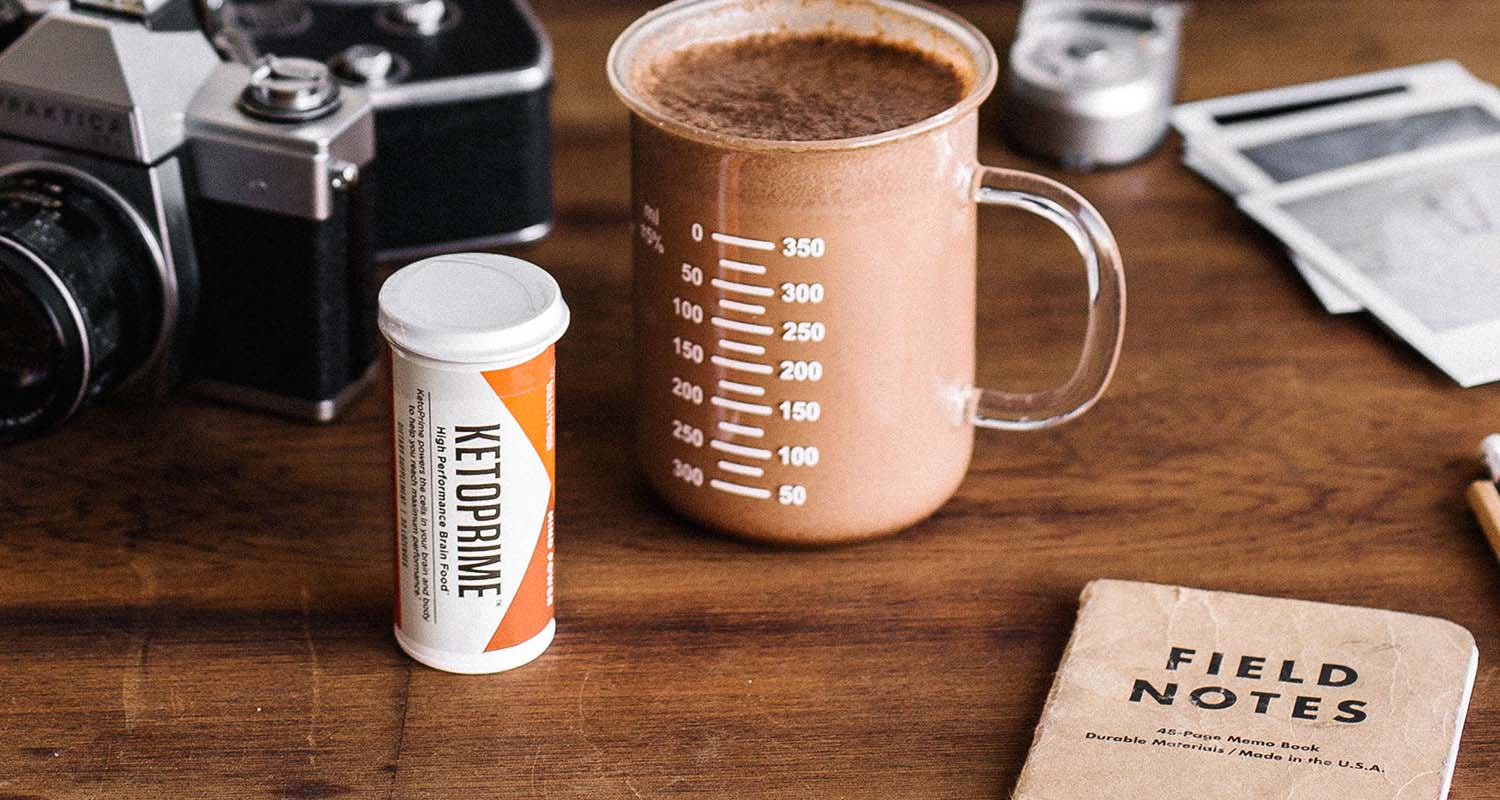
- KetoPrime contains oxaloacetate, which makes your mitochondria more efficient at producing energy
- Unfair Advantage contains CoQ10 and PQQ, which work together to help you power up your existing mitochondria and grow brand new ones.
- Glutathione is your body’s master antioxidant, to help combat inflammation that comes with flying
- N-acetyl cysteine helps your body make even more glutathione
Compression pants and socks
Airplanes have all of the ingredients for impaired blood flow: low air pressure, dehydration, restricted movement, and hours of sitting. Flying actually increases your risk of deep vein thrombosis (DVT), aka blood clotting in your legs, by 100-200 percent. Compression clothing improves circulation and prevents blood clots from forming.
Water
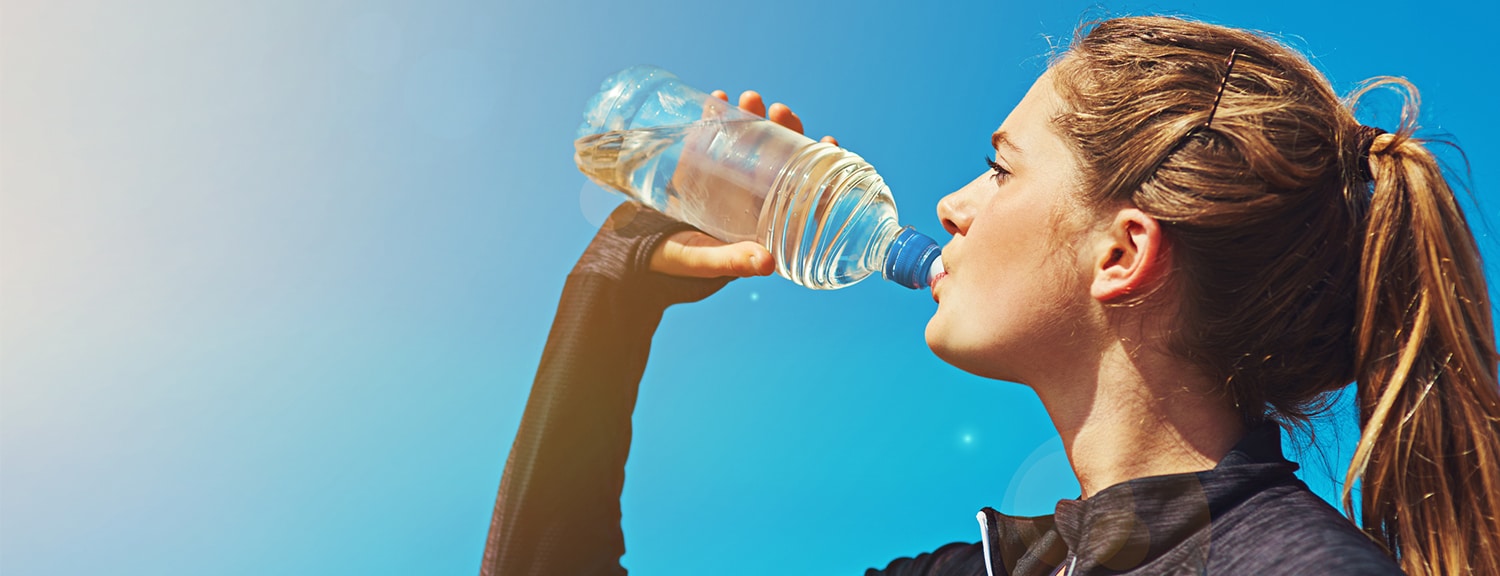
This travel bottle is equipped with its own filter so that you don’t have to fill with water fountain tap water.
Noise-canceling headphones
You may not notice the constant rumble of the engines after the first few minutes in the air, but your body and brain do. It takes a lot of brain power to filter out the sounds you want to hear from the background noise at jet-engine volume. Noise-canceling headphones not only make it easier for you to hear your podcast or movie, but they also save some brain power for you when your flight is over.
In-ear noise canceling headphones are much more travel friendly, because they are small enough to pack anywhere and they don’t get in the way if you want to lean against the window and sleep.
Get noise-canceling headphones here
Filtering out blue light
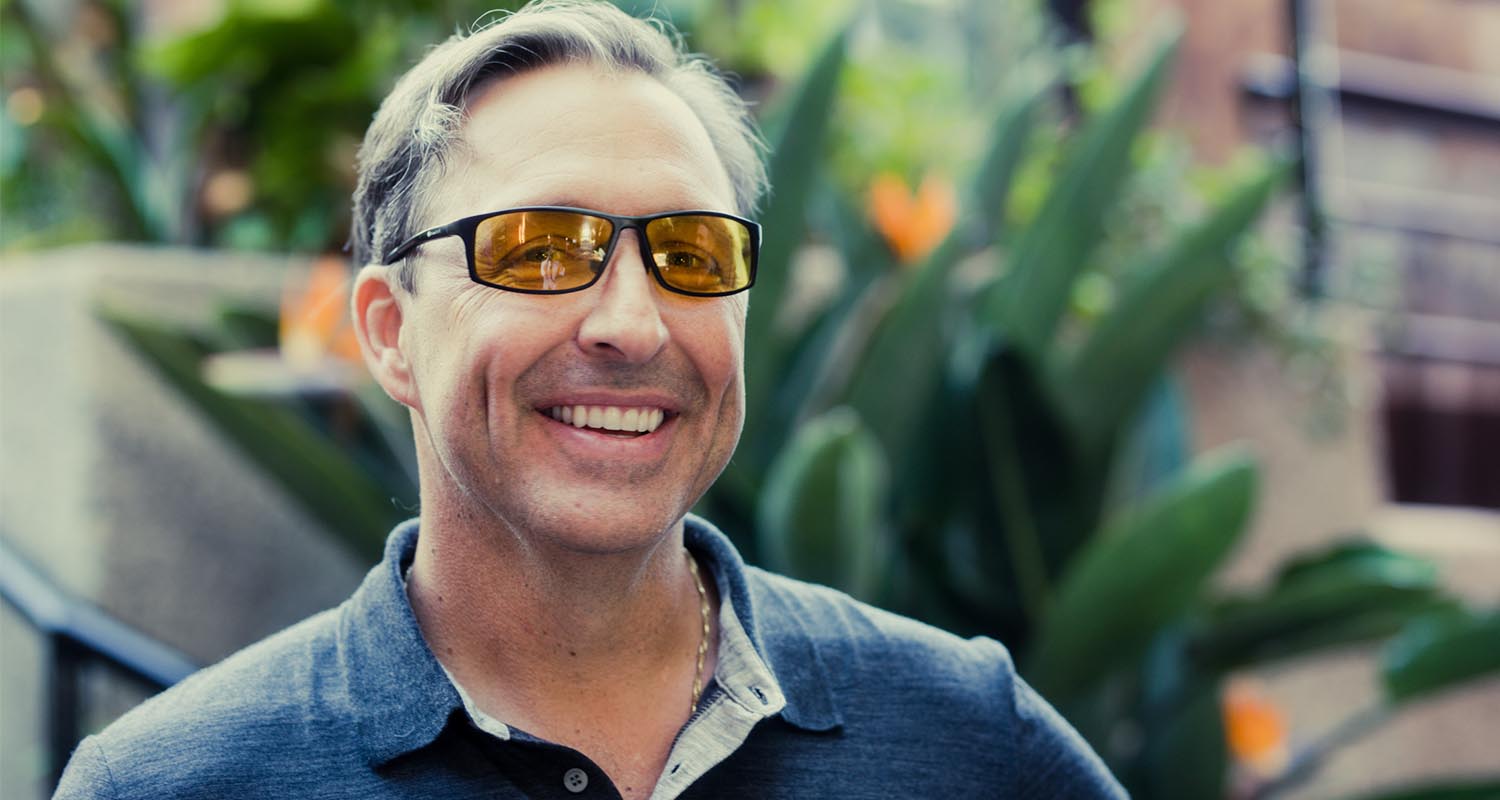
On top of that, some airlines flip on decorative blue lights, which are especially hard on your delicate eye tissues and mitochondria, the power plants of your cells. The wrong wavelengths at the wrong time disrupts your sleep and fatigues every cell in your body.
True Dark glasses were designed to block the wrong wavelengths and let in the right ones, so that you don’t feel the negative effects of blue light.
Disinfect your seat
If you’re on the first flight of the day on your aircraft, the plane is as clean as it’s going to be all day. It’s a good idea to give your seat, tray, and armrests a good wipe down before you settle in. You can use anything that’s effective against microbes, like:
- Wipes
- Rubbing alcohol
- Natural disinfectant spray (spray onto a towel, then wipe, so you don’t intrude on your neighbors)
Get travel-sized cleaning wipes here
It’s also a good idea to open the lavatory door with a tissue, and wash your hands when you’re finished.


